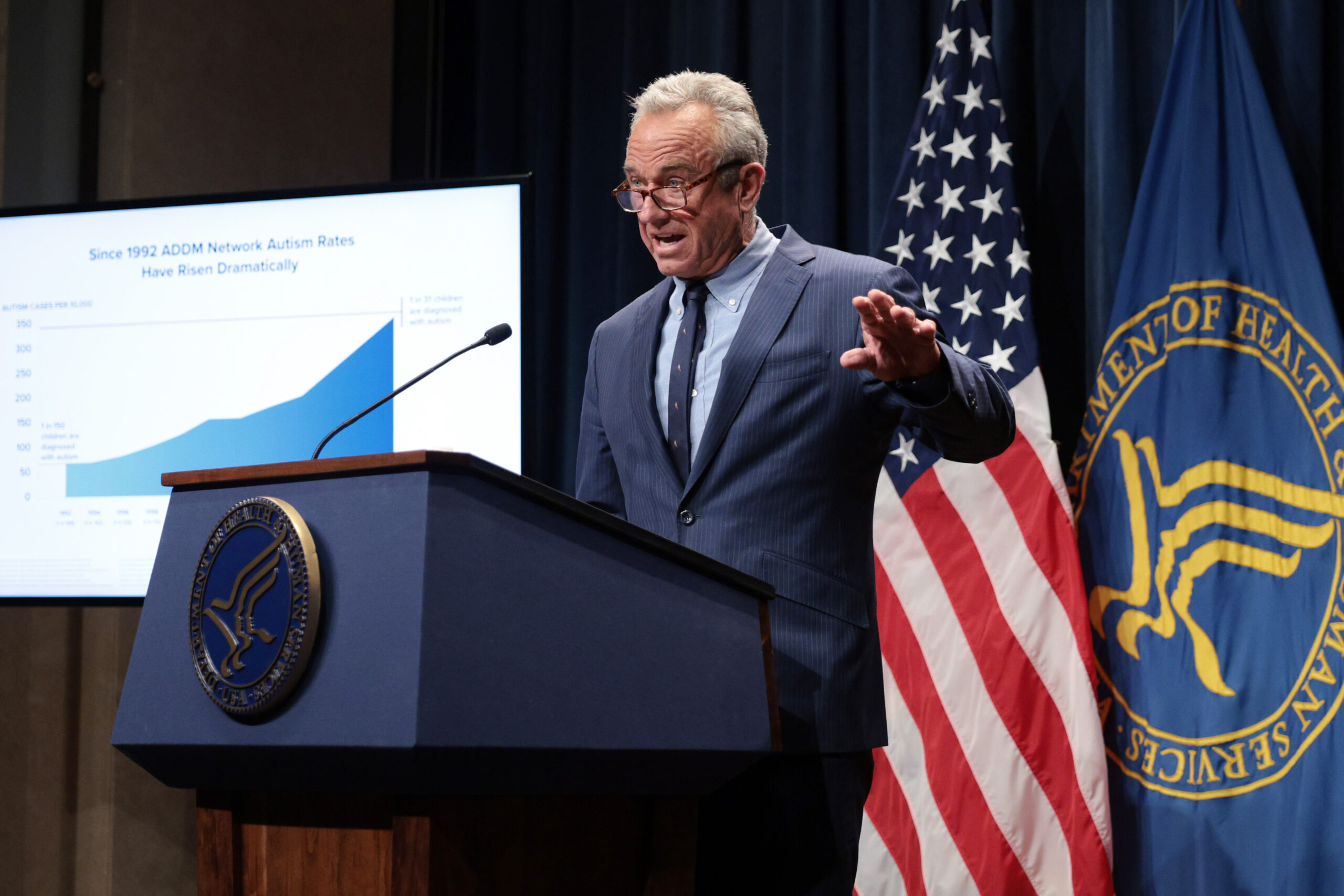
A leading national autism researcher refutes statements made by U.S. Health and Human Services (HHS) Secretary Robert F. Kennedy Jr. regarding environmental factors being primarily to blame for a drastic increase in known national cases.
Why It Matters
On Wednesday, Kennedy highlighted what he described as an “epidemic running rampant” of autism cases nationwide, following a Centers for Disease Control and Prevention (CDC) study released this week showing that autism prevalence has increased from 1 in 36 children to 1 in 31—4.8 times higher than in the first ADDM survey released 22 years ago, when prevalence was 1 in 150 children.
What To Know
During his press conference, Kennedy partially blamed “epidemic denial” on the mainstream media and claimed that more research and awareness of autism spectrum disorder (ASD) is not indicative of the rise in rates.
“We know it’s environmental exposure,” Kennedy said on Wednesday. “It has to be. Genes do not cause epidemics. They can provide a vulnerability, but you need an environmental toxin.”

Alex Wong/Getty Images
He added: “And clearly there are industries, this is coming from an environmental toxin. And somebody made a profit by putting that environmental toxin into our air, our water or our medicines, our food, and it’s to their benefit to normalize it.”
Roma Vasa, director of psychiatric services with the Center for Autism Services, Science and Innovation at the Kennedy Krieger Institute, disagrees with multiple aspects of Kennedy’s assertions.
“I think the current HHS guidance as it pertains to autism reflects a major and concerning shift from what we know about the causes of autism,” Vasa told Newsweek. “We have overwhelming research showing that vaccines do not cause autism. Rather, autism is caused by a combination of genes interacting with environmental influences.
“We need to focus our efforts and dollars on advancing research on gene-environmental interactions and not vaccines because we have already shown that vaccines do not cause autism. We also need to study what the most effective supports and treatments are for individuals with autism.”
Vasa also differs with Kennedy on how broader autism awareness has impacted perception. The secretary said on Wednesday that autism is not a result of heightened diagnoses or awareness.
More awareness coincides with better screening and diagnostic methods and updated diagnostic criteria for autism, she said.
“We know from decades of rigorous research using the most advanced scientific techniques that autism has a genetic basis,” Vasa added. “We now understand that autism arises from an interplay between multiple genes. It is therefore essential that we continue building on these genetic discoveries without losing momentum.
“While it is possible that environmental influences may interact with genes implicated in autism, this should not be [the] sole and primary area of our efforts.”
She also refutes Kennedy’s past statements regarding purported links between vaccines and autism, which Vasa said have continually been “disproven” and that such conversation “wastes valuable time and resources that could be better spent building on our scientific findings” in addition to developing systems and supports to help autistic individuals and their families thrive and succeed.
What People Are Saying
Nigel Newbutt, assistant professor of advanced learning technologies at the University of Florida, to Newsweek: “In my view, we cannot afford to continue with existing ways of framing autism, but instead think about societal barriers, such as inaccessible environments, rigid systems and negative attitudes, that exclude or disadvantage people with differences.”
Kristyn Roth of the Autism Society of America, to NPR: “It has to be rooted in science and facts. And to definitively say that autism is caused by an environmental factor or toxin is not rooted in known science right now.”
What Happens Next
Kennedy has vowed to provide more answers to Americans on this “epidemic” by this September.




